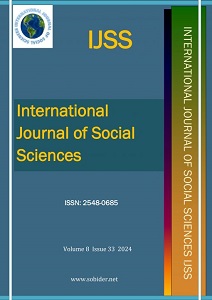Epistemoloji Açısından Eğitim Yönetiminde Doğruluk Sorunsalı
The Problem of Accuracy in Educational Management from the Point of View of Epistemology
Author(s): Nurşen AkdoğanSubject(s): Education, Epistemology, Management and complex organizations, Sociology of Education, Philosophy of Education
Published by: SD Yayınevi
Keywords: Education; Educational Management; Epistemology; The Problem of Accuracy;
Summary/Abstract: The educational services offered in a country are carried out within the framework of certain policies. These educational policies reflect the thoughts and philosophies of those who create them about life and education. For this reason, having knowledge about the philosophy of education provides a better understanding of the adopted policies and how to manage them. The forms of knowledge creation of scientific disciplines and fields are specific to the field. Accordingly, knowledge and the epistemic uses of knowledge cannot be understood without at least a slight idea of how knowledge is created. Researchers need structures beyond cognition in order to examine and reorganize how information is created and how various disciplines do it differently. At this point, the philosophical dimension of the subject also becomes important. The philosophy of education is in relation to the theory of knowledge of philosophy, and an educational philosophy proposes various views on what constitutes the nature of man, human interests, needs, happiness, and what is good for man. In this sense, it is necessary to determine how knowledge is known in the field of educational management, what tools are used in the production of knowledge, what resources are used, how knowledge is applicable and the accuracy of knowledge. In this context, the problem of accuracy is at least as important as information. True, it is the proposition that corresponds to the truth. Truth, on the other hand, is that which is accepted to exist independently of consciousness and design and is the subject of the correct proposition. The words truth and reality are used interchangeably from time to time. But actually, the two are different things. Reality is a thing or phenomenon that exists in the external world. Therefore it is real. If not, it is not real. Truth is the property of a proposition that is true, and it is a proposition or statement about this thing or phenomenon that exists. Truth refers to the logical relationship between a proposition and a fact. For this reason, it is questioned whether what is true is true, and what is true is true.
Journal: Uluslararası Sosyal Bilimler Dergisi
- Issue Year: 8/2024
- Issue No: 33
- Page Range: 415-429
- Page Count: 15
- Language: Turkish

